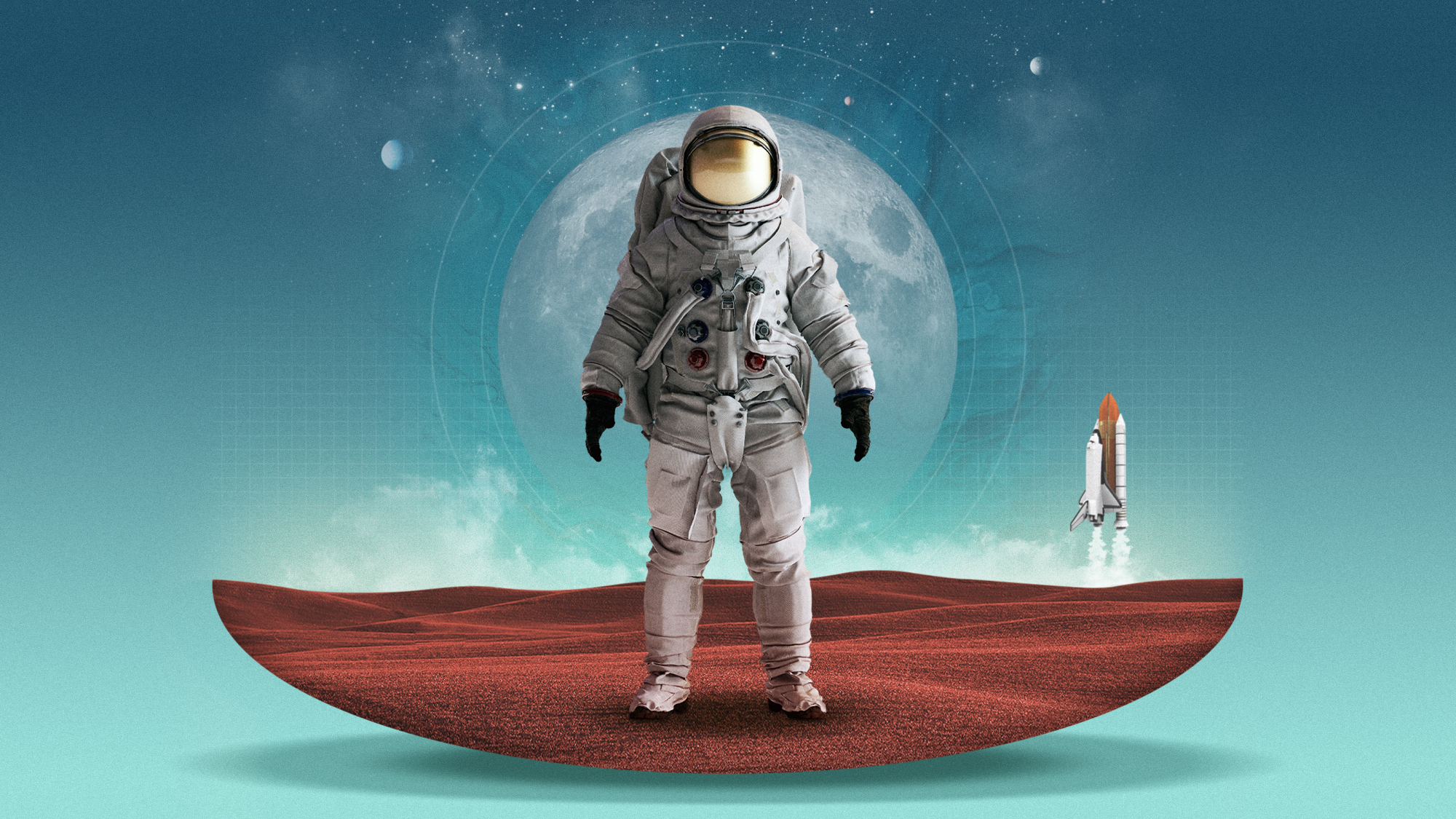The long journey to becoming an astronaut
Soaring into space remains a dream of children and adults alike – but how do you become an astronaut?

A free daily email with the biggest news stories of the day – and the best features from TheWeek.com
You are now subscribed
Your newsletter sign-up was successful
Becoming an astronaut is a dream for people young and old, with recent polling suggesting that two-thirds of British children want to work in space.
That dream is becoming a reality for Belfast-born Rosemary Coogan, who finally got her "astronaut wings" last month, said the Daily Mail. The 33-year-old astrophysicist is the UK's third-ever astronaut, following in the footsteps of Helen Sharman and Tim Peake.
Some astronauts have a much longer wait before blasting into space than Coogan is likely to face. Last weekend, Ed Dwight finally fulfilled that ambition at the age of 90, more than 60 years after he was chosen by then US president John F. Kennedy to become the country's first Black astronaut. Nasa ultimately did not select Dwight for a mission, but he is now the oldest person to go to space, following a 10-minute flight on Jeff Bezos's Blue Origin capsule.
The Week
Escape your echo chamber. Get the facts behind the news, plus analysis from multiple perspectives.

Sign up for The Week's Free Newsletters
From our morning news briefing to a weekly Good News Newsletter, get the best of The Week delivered directly to your inbox.
From our morning news briefing to a weekly Good News Newsletter, get the best of The Week delivered directly to your inbox.
Although few have to wait as long as Dwight, the path to becoming a professional astronaut is always long.
'Tremendous responsibility'
By the time professional astronauts reach space, they generally have at least a decade of professional and educational experience in technical fields. It then takes about two years to qualify for space and several more years of mission training.
Candidates need to be between 27 and 37 years old and fluent in English. Russian is spoken with English on the International Space Station, so a basic grasp of that language is also a definite plus.
Hopefuls need a degree and a postgraduate qualification in a relevant subject such as science, engineering or aeronautics, and "you'll have an advantage if you're a pilot with at least 1,000 hours of flying experience in a high-performance aircraft like a fighter jet", said the National Careers Service.
A free daily email with the biggest news stories of the day – and the best features from TheWeek.com
A strong character is important too, because astronauts have to "bear tremendous responsibility while in orbit", said the European Space Agency, and because it is "a challenge to live in a confined space for long periods with other people".
Other helpful characteristics are "an ability to adapt quickly to changing situations" and "mature judgement", as well, of course, as a willingness "to spend long periods away from home".
'Pressure chambers'
Most agencies require a newly selected individual to pass a series of basic tests across two to three years of training before qualifying as an astronaut.
Coogan was trained in technical skills including spacecraft systems, flight engineering, robotics and life-support systems. She took part in winter survival training in the "snowy mountains of the Spanish Pyrenees" and "experienced the effects of hypoxia first-hand in a pressure chamber", said gov.uk, enabling her to "recognise symptoms and respond accordingly" in low-oxygen environments in case of an air leak or reduced pressure in a spacecraft.
Graduating from astronaut basic training was "an incredibly moving moment for me", said Coogan. "From dreaming about space to now being one step closer to reaching it", she said she felt "filled with gratitude and determination to make the most of this extraordinary opportunity".
Coogan visited Nasa's facilities in the US, where she took part in scuba diving for spacewalk training underwater in a 12-metre-deep Neutral Buoyancy Laboratory and spent time in a replica of the International Space Station, where astronauts can perform underwater simulations of spacewalks.
"Even after that", said Space, astronauts "may spend years or decades on the ground", waiting for a slot to open on a rocket mission. They are kept busy, however, with "supporting other space missions, working on spacecraft development" and other agency tasks.
Chas Newkey-Burden has been part of The Week Digital team for more than a decade and a journalist for 25 years, starting out on the irreverent football weekly 90 Minutes, before moving to lifestyle magazines Loaded and Attitude. He was a columnist for The Big Issue and landed a world exclusive with David Beckham that became the weekly magazine’s bestselling issue. He now writes regularly for The Guardian, The Telegraph, The Independent, Metro, FourFourTwo and the i new site. He is also the author of a number of non-fiction books.